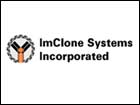|
ImClone stands pat
|
 |
February 12, 2002: 3:21 p.m. ET
Drugmaker rejects partner's demand for changes to drug-development pact.
|
NEW YORK (CNN/Money) - ImClone Systems rejected Tuesday a proposal by Bristol-Myers Squibb to restructure their marketing and development agreement for cancer drug Erbitux.
Bristol-Myers said it is "extremely disappointed" at ImClone's decision but, because of the importance of the drug, will continue to voluntarily collect data ahead of a meeting with the U.S. Food and Drug Administration.
In a letter to Bristol-Myers CEO Peter Dolan, ImClone's board said it sees no need to renegotiate the terms of the agreement, but it is willing to continue seeking Food and Drug Administration approval for colorectal cancer treatment Erbitux under the existing terms of their pact.
Bristol-Myers (BMY: up $0.21 to $45.38, Research, Estimates) said on Feb. 5 that it would abandon the agreement with ImClone (IMCL: up $0.82 to $17.65, Research, Estimates) unless the embattled biotechnology company made several changes.
These changes included ceding control of the regulatory approval process to Bristol-Myers, no more milestone payments for Erbitux, a shift to favor Bristol-Myers with the larger percentage of royalties, and the removal of Sam Waksal, ImClone president and CEO, and COO Harlan Waksal until the cancer drug is approved.
"I don't see how ImClone could have accepted the demands," said Patrick Mooney, biotech analyst with Thomas Weisel Partners, who told CNNfn ImClone would turn Bristol-Myers down.
"The only way that would work is if ImClone acted improperly and there's no indication that they did," Mooney said. "Bristol went into this with their eyes wide open."
In a letter to ImClone Tuesday afternoon, Dolan said it is clear the companies have a "fundamentally different view" about the seriousness of the FDA's refusal to file letter for Erbitux and what remedies to take, including who will shepherd the approval process.
Dolan said Bristol-Myers has provided significant support to ImClone that it was not contractually obligated to give. He said his company will continue to voluntarily collect data for ImClone's Feb. 26 meeting with the FDA and be present at that meeting.
But he said Bristol-Myers will consider its business and legal options about its relationship with ImClone and will make a decision after the meeting.
Jim McCamant, biotech analyst with Moors & Cabot and an ImClone shareholder, said it's about a 50-50 proposition as to whether the FDA will accept data they said was missing from the first application, but ImClone and Bristol-Myers could also decide to seek approval for Erbitux to treat head and neck cancer.
"They would love to have the colorectal go ahead because that's a larger market," McCamant said.
ImClone was hit with several class-action lawsuits early in January for allegedly making misleading statements about the reasons for the FDA's rejection of the colorectal cancer treatment on Dec. 28, 2001.
Sam Waksal had said in a Dec. 31 conference call that the problem was one of documentation, but told investors and analysts at a Jan. 9 conference that the problem was "not an insignificant problem," that certain data did not exist and that the company "screwed up."
Mooney said it is unlikely Erbitux will get approved without more testing and the two companies will have to meet somewhere in the middle and hash out an agreement.
"Essentially that makes the most sense to get the drug approved for patients," he said.
A source close to the situation said ImClone is ready to go it alone rather than compromise, but analysts noted the biotech needs Bristol-Myers experience in marketing drugs.
The Erbitex situation, and a January photo in New York magazine of Sam Waksal at a holiday party with rock star Mick Jagger, have revived among ImClone investors controversies over the time Waksal spends socializing with celebrities and working on outside business ventures, according to a January report in the New York Times.
Sam Waksal founded ImClone in 1984 with younger brother Harlan. It failed to hit on a promising drug and narrowly escaped bankruptcy in the mid-1990s until it hit on Erbitux, for which it sold a $2 billion, 20-percent stake to Bristol-Myers in September, 2001, the Times recounted. 
|
|
|
|
|
|

|

